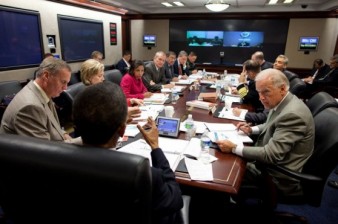
07/03/2015 12:17
Six Things You Need to Know in Order to Understand ISIS
By Don Liebich. Foreign policy journal
The Obama administration continues to struggle in its efforts to craft an appropriate response to the threat posed by the advance of the Islamic State in Iraq and Syria (ISIS). While Obama has declared that his goal is to “degrade and destroy ISIS,” he has not gone much further in defining what that means in terms of formulating a strategy. The pontificating by neo-conservative and liberal interventionist pundits and politicians is not helpful and, in fact, is counterproductive. Any effort to create a coherent strategy that has much chance of being successful will require a realistic assessment of ISIS, its strengths, weaknesses, and goals, as well as a threat assessment as it relates to U.S national interest. There are six things to keep in mind in this process:
* ISIS did not arise in a vacuum. The milieu in which it arose was a powerful mold that has shaped its world view. The conservative Salafist, takfiri brand of Islam, with its intolerant, rigid interpretation of Islamic law, which has been exported around the world by the Wahabis in Saudi Arabia, has laid the ideological groundwork for the global support for ISIS. The U.S. invasion of Iraq and the subsequent bungled occupation, and nation building effort as well as the chaos of the Syrian Civil War were the triggers that set off the emergence of ISIS as a powerful faction. The majoritarian rule of the Shia government in Iraq, which alienated Iraqi Sunnis, contributed to the increased popularity of ISIS in Iraq and Syria and its growing military strength.
* ISIS is a terrorist group and more. The term terrorist has been so misused that it has lost any meaning. For me, any group that kills civilians, intentionally or with reckless disregard for consequences in pursuit of political objectives, is a terrorist group. By this definition, ISIS is a terrorist group. It is, however, also a criminal gang, a political party and a proto-state. It extorts citizens, steals property, kills its opponents, spreads its ideology, manages and delivers services, such as water and electricity, and dispenses justice. Any strategy that focuses only on the terrorist component and ignores the others is unlikely to be successful.
* ISIS’s global appeal results from deeply imbedded conditions in many countries around the world. Its popularity and ability to recruit followers depends on disaffected Muslim youth searching for adventure and Western Islamo-phobic actions and rhetoric that play into its message that Muslims are under attack in non-Muslim countries and that the only road to safety is to create an Islamic caliphate. Changing these conditions will be a difficult, long-term project.
* ISIS is susceptible to declining support. Its conservative, violent ideology of “One leader, One authority, One mosque: submit to it, or be killed” is deeply unpopular in the areas where it rules. It remains in power through fear. While the violence and deprivation resulting from years of war have drawn many to become more religious, Iraqi and Syrian Muslims have long been secular. Sooner or later they will say enough is enough and turn on their oppressors.
* ISIS is not a Syrian rebel group. ISIS’ aspirations are transnational. The other Sunni rebel groups are a bigger threat to the goal of creating a Sunni Islamic Caliphate than is the Assad regime in Damascus. The Assad regime is perfectly happy to have ISIS fighting the rebel groups whose objective is to overthrow the Syrian government. Having ISIS weaken the rebel groups, but remain in control of its current large, but sparsely populated, region, would not be a bad outcome for Assad. The question for the Western powers and their regional allies is whether or not this is an acceptable outcome for them.
* ISIS is a political movement, not a religious movement. While ISIS uses religious language to attract followers and justify its actions, its ultimate goals are political. Its terrorist actions, while they kill people, are political theater designed to achieve a political outcome. A counter-terrorism strategy alone will not defeat ISIS. A reaction against the larger Muslim community will be counterproductive.
The degrade part of “degrade and destroy” is the easy part. The current tactics of air strikes will probably accomplish this. The destroy part will be much more complicated and long term. I have seen no sign that the Obama administration has a strategy to achieve this.








